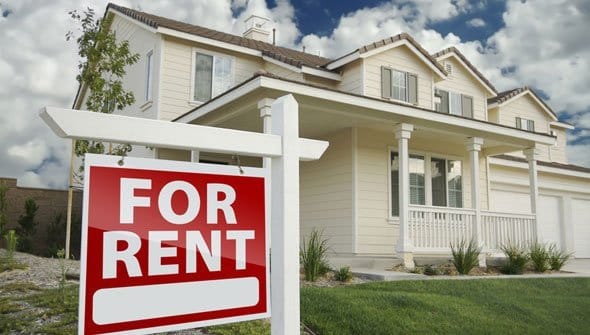Those who want to build long-term equity in a property without having to make monthly mortgage payments are drawn to real estate investing and the rental property business. To start a business renting out residential or commercial space, you must first acquire property. Despite its apparent appeal, this industry is not for everyone due to the high entry cost, high risk of loss, and the heavy burden of legal obligations. However, create a plan for your first deals that will help you gain experience while keeping your exposure to danger to a minimum. With the support of tried and true rental property business plan examples and ideas, investors may set up the structures and metrics necessary to achieve more success. In this article, we will discuss how to start a rental business property with no money, and tax deductions.
What Is a Rental Business Property?
A rental property business is a type of investment strategy in which a person acquires and then oversees one or more rental units. One or more of the dwellings in such properties may be rented out to paying tenants. Investors can have a successful rental strategy even if they don’t manage the properties themselves. They can hire a property management company to take care of things like collecting rent and making repairs.
Furthermore, the real estate industry is competitive and full of potential profit land mines. Don’t immediately call in the professionals when you start seeking a residence; do some preliminary digging on your own. An agent may put you under pressure to make a purchase before you’ve done enough research to determine the optimal investment strategy for you. But, some detective work and footwork will be necessary to find this financial opportunity.
Your search will help you zero in on the perfect property in terms of kind, location, size, and features. Following this step, it’s a good idea to consider hiring a real estate agent to help you close the deal.
How you plan to handle property management (on your own or by hiring someone else) will determine where you can put the business. You should not purchase a property that is too far from your home if you plan to personally oversee its management. When hiring a rental business property management company, distance is less of a concern.
How Do I Start a Rental Business?
Over the past decade, the rental market has expanded at a breathtaking rate. Nonetheless, it can be scary for a newcomer to take that first step. Although it will take a lot of hard work and a steady hand to get a rental business property up and operating recently, the rewards will be well worth the effort.
Because people all around the world are starting to take environmental and economic issues more seriously, there has been an increase in the demand for rental services. There is a lot of possibility in the rental business right now because the market is expanding. But, in order to capitalize on this chance, you need to make sure that you do everything correctly. Here are things to consider before you start a rental business.
Download Rental Business Plan Template
#1. Specify Your Target Market
Part of the fun of beginning a rental business is learning about the passions of your potential customers. Before opening a shop, find out what resources are necessary to run a successful rental business.
Investigate Google Trends using search terms related to your local rental market to gain empirical knowledge. Customers of the future may be wondering why they should buy when they can rent high-quality new equipment.
You should begin by researching your intended audience since this can help you understand their demographic makeup, as well as their interests, activities, and other factors that could lead to profitable trends. Without the potential for financial gain, your rental idea will remain just that: a pastime.
#2. Check Out the Competition
Especially in situations where the chances of a David and Goliath resolution are low, it is important to research the competition and the threats you will face. Assume, for the sake of argument, that you’re interested in launching a bike and scooter rental business in the Los Angeles and San Francisco areas. You need to give serious thought to Lime Tours, as well as any other Venture fleets in your area, as formidable competitors.
Reduce your alternatives by focusing on what you want and what you’re good at. For the simple reason that enthusiasm and potential are the best bedrocks for successful rental business property ideas.
That it will take time and effort on your part to launch your firm is a given. Understanding the market and your competitors is critical to your rental property business’s success.
#3. Identify Your Perfect Spot
Use your own habits and routines as a starting point for figuring out how to manage a successful rental business property. Suppose you spend your weekends working as a mountain guide at a nearby mountain, guiding visitors and explaining the ropes.
Can you envision yourself working in a ski rental shop, meeting and conversing with other winter sports enthusiasts? Think deeply about how you’d like to spend your time and what kinds of rental gear might make you happy.
Starting your own rental business would allow you to do many things you love, such as buying your favorite brands, networking with people in your area, and encouraging others to follow in your footsteps by going on their own exciting trips.
#4. Examine Your Pricing Strategies
Check the market to see what people are prepared to pay for rentals before you start your business.
Most crucial, set reasonable rates that can yet attract tenants. It is possible to gauge the tolerance of your target market by looking at the current rental market, however, this will depend on the level of competition you face. While determining your rental prices, please think about the following questions:
- Is there anything special about your service that would allow you to charge more than the going rate?
- Do you anticipate more short-term or long-term rentals from your clients?
- To what extent do your prices exceed or fall below those of other businesses in the area?
Eventually, you’ll need to raise or lower your prices to compete with the market, but always use your own numbers as a starting point, rather than those of your rivals in the rental market.
#5. Communicate With Your Target Market
Consumers may not require thorough information about the features of the rental item, but they will likely welcome learning about the advantages.
If you’re renting out kayaks, you might say something like, “Enjoy the magic and peace of the water from an altogether new perspective.”
As opposed to that, if you say something like, “embark on a journey in the ocean in the latest lightweight, vibrant kayak,” it may leave potential renters wondering what they’ll actually get to do if they book with you.
While paying to rent a piece of equipment, guests are putting their trust in the provider that they will receive the item in good working condition. Those who own rental businesses are seen as knowledgeable specialists in their communities by their clientele.
Visitors to your city, especially if it is their first time there, will value your advice and insights. Focus on developing favorable connections with your rental brand name in the minds of clients and local businesses through every interaction you have with them.
How to Start a Rental Property Business With No Money
Buying land or buildings to rent out to tenants in exchange for regular payments is what the rental property business is all about. One client can rent the entire property. If you choose, you may even partition it into many apartments and rent them out individually. So, it’s a company because you own properties and collect rent from tenants.
It is possible to start a rental property business with no money. You can even run your business from the comfort of your own home. But before you start a rental property business with no money, you need to know a lot about the business and why you need to take certain precautions. There are two things you must keep in mind: If you want more customers and more money, you need to put in extra time and effort to learn as much as possible about your market. Here are some tips on how to start a rental business property with no money.
#1. Research
Do your homework on the specifics and current trends of the rental property industry before committing time or money to it. See which rental or lease properties are in demand and how much room there is for newcomers like you. First, you should consider the scope of your company. You can start with one rental property or 100, renting out the whole house or just a room at first.
Locating the neighborhood or community where you wish to put down roots with your rental property is another crucial step. Do your research on the area’s rental property demand and the going pricing before settling on a neighborhood.
#2. Partnership
You can find a partner that has the resources you need if you have a solid company plan, a proven track record, and huge ideas. As they take care of the financial side of things, you can focus on running the company. The division of earnings should also be discussed. Make it work for both relevant parties.
Also, Joint ventures might also take the form of investing with a builder. If you lack the necessary abilities, such as those in carpentry and plumbing, to purchase a property to fix up and resell on your own, you may wish to consider forming a partnership with someone who does possess these skills and who may be willing to help with the down payment. In addition, profits from the transaction might serve as the starting point for other property investments.
#3. Try Borrowing Money From Close Friends or Relatives
Borrowing from family members is another viable alternative if you lack the first capital to launch your real estate venture. Even if this is less formal, you should still offer them a formal promissory note that specifies when payments are due, how much interest will be charged, and what, if any, ownership stake the lender will have in the property. Maintaining your word is crucial since it can affect how people will react to you if you ever find yourself in a situation where you need their help again. Paying back the loan on time and with interest can increase the likelihood that the lending institution will work with you again in the future. This is a fantastic choice, however, many families have been torn apart due to the clumsy execution of the necessary procedures.
#4. Rental Purchase Opportunity
An investment in rent-to-own allows you to build equity in a home by paying simply the monthly rent due. Depending on the terms of your lease, you may have the option to buy the property at a future date. While the rent-to-own home is unavailable to anybody else, you are free to pursue investment opportunities in other homes. Be sure the ultimate purchase price of the property is included in the contract.
You don’t have to wait a long time before using your salary or wages to start a business. Get things rolling at your own pace. Create a bedroom in the cellar and put it up for rent. Money can be made from vacant homes. If you help people buy and sell homes, you can make money in real estate without either of these. Your managerial and administrative abilities will likely impress a potential investor. In return for your investment, your share of the company’s future profits will be based on the volume of sales.
Borrowing money from family members or a financial institution is a common strategy to get a business off the ground. If you don’t have many options for getting a loan, the seller or the business may be your only choice. Invest in a rent-to-own house to enjoy the benefits of renting without giving up the prospect of owning it. These suggestions can help you lay the groundwork for a prosperous real estate portfolio.
#5. Creating Potential Customers’ Interest (Lead Generation)
Identify potential tenants, buyers, and sellers of real estate. It’s best to look closer to home for viable leads. Consider utilizing your social and professional ties as well. After you begin looking for potential vendors, it is critical to begin building a database of potential buyers. Look for merchants on the web. Customers who are a good fit for specific properties can then be sold your leads.
What Type of Rental Property Is Most Profitable?
In general, you may get more money back from your investment if you have more people living in your home. RV parks, apartment complexes, and student housing are often the best places to house the most people at once.
Rental Property Business Tax Deductions
Being a landlord can help you save a lot of money, but it’s also a lot of effort. Finding tenants, getting insurance, and paying a mortgage and property taxes are all on top of the costs and commitments associated with maintaining your own home. Tax issues might also get more complicated when you rent a home.
Fortunately, you can deduct a portion of the costs you incur as a landlord from your taxable income. The Internal Revenue Service (IRS) requires that in order for an expense to be tax deductible, it must be commonplace in the rental industry and essential to the operation and upkeep of the property. Working with a financial advisor is another option for mitigating the monetary and tax deductions of rental business property.
Best Rental Property Business Tax Deductions
A rental property owner might benefit financially and operationally from taking advantage of tax deductions for a variety of business expenses. In order to turn a profit as a rental property, there are a variety of costs that must be covered, including those associated with the initial purchase, ongoing management, and emergency repairs. Here are the best rental property business tax deductions.
#1. Compensation for Professional Expenses
In some cases, landlords may be able to deduct professional fees used in managing a rental property. You can deduct the price of hiring an accountant or buying tax preparation software. You can have a lawyer look over your lease documents anytime any time. Take out the astronomical hourly costs. If you paid a broker to find tenants, you can deduct their fee. Promote the home in print, on the air, and on the web. You can take out the money spent on ads.
In fact, if you meet with your advisor to discuss the rental property, you can deduct their fees as well. This deduction would be used to pay for the legal and court costs associated with evicting a tenant. All of these costs belong under the category of operational expenditures. But, legal expenditures used to defend the title to your property or to recover and enhance the property are not tax deductible.
#2. Deduction for Mortgage Interest
Home loan costs, such as appraisal and origination fees, are not tax deductible. Instead, you get a higher “basis” in the property as a result of these expenditures.
You can still deduct interest on a secured mortgage loan for your primary or secondary residence up to $750,000. Mortgage interest is deductible as an operating expense for investment properties.
Each year, your mortgage servicer will send you IRS Form 1098, which details the interest you paid that year. Your mortgage servicer should also inform you if a portion of your payment goes into an escrow account to cover taxes and insurance.
The mortgage interest paid on rental properties is recorded on Schedule E of Form 1040 or 1040-SR, while mortgage interest paid on a primary residence is reported on Schedule A. Internal Revenue Service. “2021 Instructions for Schedule.
#3. Preventative Maintenance and Repairs
Although depreciation can be used to write off the cost of home upgrades, the tax code also permits the deduction of some repair and maintenance expenses. The key distinction is that the former keeps your property in rentable shape while the latter does not. The Internal Revenue Service lists the following as examples of improvements: room additions (bedrooms, bathrooms, decks, garages, patios, porches), landscaping, HVAC, plumbing, insulation, interior upgrades (kitchen, built-in appliances, wall-to-wall carpeting, and other miscellaneous repairs), and roofing (roofing, storm windows, security systems, wiring).
Paying an employee to do the job is an allowable business expense. The same holds true for on-site managers or property managers. If you choose to do things yourself, you can write off the cost of renting the necessary equipment and supplies. The same logic applies to the deduction of condo and homeowner association dues.
#4. Real Estate Taxes
Taxes on real estate are a standard source of revenue for the majority of the country’s local and state governments. These might be as low as a few hundred dollars or as much as several hundred thousand, depending on where in the world your rental property is located. Whether you consult an escrow summary or a tax expert, you can learn the local tax rate with pinpoint accuracy. Landlord or short-term rental license costs are deductible if and only if they are required by state law.
Keep in mind that the IRS only allows a total deduction of $10,000 (or $5,000 for married taxpayers filing separately) for state and local income, sales, and property taxes. The excess of state and local taxes paid cannot be deducted.
Occupancy taxes are a type of cost that some states, cities, counties, and municipalities levy on those who handle short-term rentals. Occupancy taxes are similar to sales taxes in that they too can be deducted. Also, don’t forget to subtract any fees or taxes associated with running your business, such as inspection fees, employee wages, social security taxes, or sales taxes.
#5. Travel Expenses
You can deduct the costs of any trips made to collect rent or tend to the rental property. Nonetheless, if the travel was for improvement purposes, the cost of the trip must be recouped.
Both actual costs and the usual mileage rate can be deducted for business trips. IRS Publication 463 contains the most up-to-date information about the regulations and mileage allowance currently in effect.
How Do You Start a Rental Property and Make Money?
Real estate investment has many upsides, including the ability to earn passive income and potential tax breaks. Yet, there is more to renting out a house than just finding renters; you’ll also need to locate investment properties that offer desirable features and manage the many aspects of the renting process. Here are tips to start a rental property and make money.
#1. Buy a Rental Home
You should acquire your first rental property if you do not intend to rent out your primary residence. Rental property financing options vary, each with its own set of prerequisites and qualifying criteria.
Once you’ve settled on a method of financing an investment property, you may begin working with a real estate agent or perusing home-searching websites that feature listings in your area. There are a few things to keep in mind when exploring real estate:
- Real estate taxation: In certain areas, property taxes are significantly greater than in others. Although tax rates might fluctuate from year to year, it’s best to look at properties that have consistently had inexpensive property taxes in the past.
- Need in the rental market: If your rental property is located in a region where there is a strong demand for rentals, you may have an easier time finding tenants than if your property were located in a region where there are more homes available for sale.
In addition, investing in rental properties that offer desirable features to tenants is the key to making a profit.
#2. Invest in Property Management Software
Managing a rental business property involves a number of tasks, many of which can be time-consuming if you don’t have a property manager. With the help of a property management software platform like Avail, however, it is far simpler to list your property on a dozen different sites, screen potential renters, access state-specific lease agreements, collect rent, and much more.
Through the Avail Referral Program, you can earn up to $500 in account credit by referring as many as 10 other landlords to create accounts. The money in the account can be used to pay for things like a tenant screening or an upgrade to Unlimited Plus or to buy an Avail Rent Analysis report.
#3. Find Reliable Tenants
A landlord can save a lot of money on repairs and legal fees by renting to responsible tenants. Get your rental listing in front of as many potential tenants as possible and set up a thorough screening procedure if you want to attract high-quality renters.
It is common practice for landlords to use a rental application and tenant screening reports when selecting a tenant, but you should verify that this is legal in your area. Some states prohibit landlords from inquiring about a tenant’s criminal history, while others impose fewer limits on this practice.
House Rental Business Ideas
You’ll see a wide variety of creative ideas for running a company when you focus on developing online booking software for the rental business. The options are many and exciting and may be pursued by anybody from those who have turned their hobby into a living to those seeking to augment their current income.
If you’ve been mulling over ideas for starting a rental business but feel overwhelmed by all the potential avenues of exploration and need some motivation to get the ball rolling, here are some ideas to consider.
- Equipment Rental Business: There is a wide range of equipment available for hire, from heavy gear to more niche items for DIY projects around the house. Some cater to general consumers while others specialize in serving a certain sector.
- Office Space Rental Business: One possible source of income is leasing out space in your commercial building to companies. Long-term leases to entire enterprises are one option, while shorter-term desk rentals and coworking memberships are another.
- Storage Rental Business: Renting out storage space has become increasingly common. A few readily available garages or cargo containers will suffice.
- Conference Room Rental: Without whole suites of offices, a commercial property may rent out individual conference rooms to local firms. These days, when many companies don’t even have an office, this may be more vital than ever.
- Party Rental Business: Tables, chairs, decorations, and even fun additions like bouncy houses can all be rented for your next party. Rental services for specific types of events, such as weddings or children’s birthday celebrations, are also viable options.
The above rental business ideas are very good for investments if you are looking up to start one.
How Do I Become a Successful Rental?
Here are tips on how to become a successful rental:
- Plan out Your Rental Approach
- Think about the best way to finance an investment property that you plan to rent
- Invest in property with the right tools
- Invest in a rental property
- Renovate and put it up for rent
Conclusion
To be sure, there is a lot to do when you first launch a rental business property, but you should feel confident in your ability to do so. Step by step, begin developing your rental business.
There is a lengthy procedure to go through, beginning with picking a rental business type and ending with gaining your first consumers.
Fortunately, with this manual and your inherent business acumen, you now have a solid foundation upon which to start a successful rental business. Think that your idea for a rental business has merit and that you can build a successful enterprise that benefits your community financially and socially. As a result, you’re probably experiencing a lovely emotion right now.
Rental Business Property FAQs
Is owning rental property profitable?
Yes, owning a rental property is a good investment. Rental properties can be a smart long-term investment if you have your finances in order, especially if interest rates rise. Even if it’s just a few bucks a month at initially, rental property revenue is desirable.
How profitable is a rental business?
It is incredibly profitable, however, the amount of profit you make will be dependent on your location.
What is the biggest risk of owning a rental property?
One of the biggest risks of renting out a house is getting a tenant who can’t pay on time. Tenants who always pay late can be a source of stress all the time. Tracking down rent payments takes time, which could delay your mortgage payments and put you in financial trouble.
Similar Articles
- BUYING A RENTAL PROPERTY: Tips on Buying a Rental Property
- Top 10 Rental Management Software In 2023: Features & Reviews
- PROPERTY MANAGEMENT TOOLS: Uses, Free Tools & Pricing
- HOW MUCH DO PROPERTY MANAGERS MAKE: Income Earning of Property Managers in the U.S.
- BEAR MARKET: Meaning, Difference & What to Do
- POCKET LISTING: Definition, Comission, Pro and Cons






